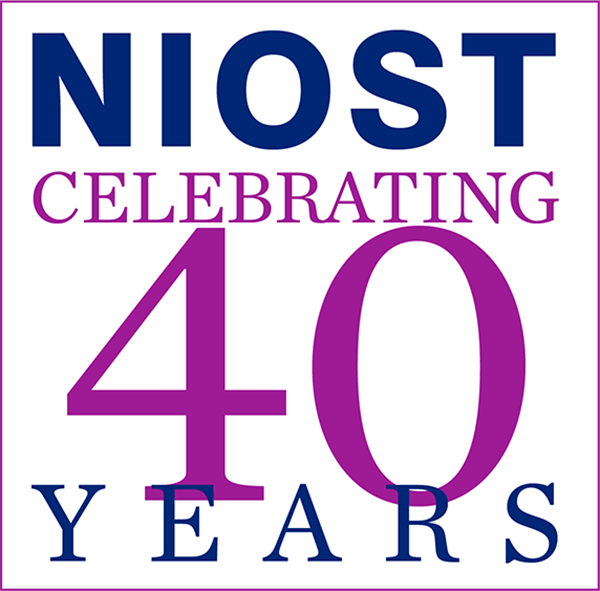Get to Know NIOST: Working Towards Quality for All - An Interview with Katie Wheeler
February 5, 2019
 As part of our new series, “Get to Know NIOST,” Kathryn A. Wheeler, a research associate at NIOST, recently took some time to answer questions about her work and the idea of quality in out-of-school time.
As part of our new series, “Get to Know NIOST,” Kathryn A. Wheeler, a research associate at NIOST, recently took some time to answer questions about her work and the idea of quality in out-of-school time.
Katie Wheeler is a busy person. She’s “involved in different stages of about seven different projects right now,” she said in an interview. Wheeler holds a doctorate in education from Harvard University, and returned to NIOST in 2016 after a 14-year hiatus, having first worked here when she started graduate school. Her special area of interest is in programs that empower girls, but she applies her talents across a wide range of initiatives.
Wheeler cherishes the variety inherent in her job. Some of her work is in the field, collecting research data for various out-of-school time (OST) programs and helping program staff target areas for improvement. She also conducts research that may eventually be part of work that’s published or presented at conferences. For example, she’s part of a multi-site study exploring how high-quality OST programming fosters children’s literacy development. Other parts of her work, such as leading the curation of the online resource library for the National Center on Afterschool and Summer Enrichment (NCASE), are more behind the scenes and involve quiet hours of research on the computer.
Wheeler also serves as a facilitator for the National Afterschool Matters Fellowship, a two-year intensive professional development opportunity for OST professionals. Through virtual meetings and in-person retreats, she and other NIOST staff work with the National Writing Project to guide the fellows on “how to do inquiry-based research and trust their own knowledge,” Wheeler explained. The goal is for them to “take the skills that they have now as practitioners to come up with their own research projects, disseminate their findings, inform the field, and take on more leadership roles.” She’s proud to report that in March, two of her fellows will be presenting their research at the National AfterSchool Association conference in New York City. Two others recently published blog posts on their findings.
Her work intersects with larger social issues as well. “One of the things that calls me to this work is that there’s a social justice component of it,” she added. “The slogan of NIOST is ‘Quality for all.’ I think there are two components to that. One is striving to ensure that all the practitioners in the field can provide high-quality programming. The other is trying to make sure that all kids have access to high-quality programs. That’s obviously not the case,” she observed.
Another piece of her social justice work involves looking specifically at OST for girls. “I’ve always had a passion about girls’ issues,” she said. “I used to run the Girls’ Coalition of Greater Boston, which provided networking, training, and advocacy opportunities for adults who work with girls.” This experience leads her to ask questions like: “Are practitioners paying attention to girls’ unique needs? Are girls getting opportunities to access activities like science and sports programs that haven’t historically always been welcoming to girls?” and “How do we make sure that girls have really good programs where they feel seen, valued, and empowered?” For the last three years, she has also partnered with a computer science program designed specifically to promote equity for young women.. She said, “It’s been really successful and I’ve seen firsthand what a gender-sensitive program looks like. It’s exciting to see girls wholeheartedly embracing computational science!”
The content and variety of the work is only part of what Wheeler enjoys, however; the other part is the people. “Working here, I have a fantastic cohort of smart, dedicated staff collaborators. I also get to work with student interns and gifted practitioners. All of these people inspire me,” she asserted.
“NIOST is an amazing place to work,” she added. “We’re at this interesting intersection of research, practice, training, advocacy, and policy, and asking, ‘What is it that kids need in OST, and how do we make that happen?’”
She adds, “I appreciate having the opportunity to work both at a very intimate program level and a big picture level. I think striving for quality is a journey. At NIOST, we’ll never be working on just one project. We will always be moving things forward in multiple directions, encouraging people to take ownership of their own journeys.”



